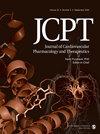The Role of JAK/STAT Signaling Pathway and Its Downstream Influencing Factors in the Treatment of Atherosclerosis
IF 2.8
4区 医学
Q2 CARDIAC & CARDIOVASCULAR SYSTEMS
Journal of Cardiovascular Pharmacology and Therapeutics
Pub Date : 2024-04-24
DOI:10.1177/10742484241248046
引用次数: 0
Abstract
Atherosclerosis is now widely considered to be a chronic inflammatory disease, with increasing evidence suggesting that lipid alone is not the main factor contributing to its development. Rather, atherosclerotic plaques contain a significant amount of inflammatory cells, characterized by the accumulation of monocytes and lymphocytes on the vessel wall. This suggests that inflammation may play a crucial role in the occurrence and progression of atherosclerosis. As research deepens, other pathological factors have also been found to influence the development of the disease. The Janus kinase/signal transducer and activator of transcription (JAK/STAT) pathway is a recently discovered target of inflammation that has gained attention in recent years. Numerous studies have provided evidence for the causal role of this pathway in atherosclerosis, and its downstream signaling factors play a significant role in this process. This brief review aims to explore the crucial role of the JAK/STAT pathway and its representative downstream signaling factors in the development of atherosclerosis. It provides a new theoretical basis for clinically affecting the development of atherosclerosis by interfering with the JAK/STAT signaling pathway.JAK/STAT 信号通路及其下游影响因素在动脉粥样硬化治疗中的作用
目前,人们普遍认为动脉粥样硬化是一种慢性炎症性疾病,越来越多的证据表明,脂质本身并不是导致动脉粥样硬化的主要因素。相反,动脉粥样硬化斑块含有大量炎症细胞,其特征是血管壁上单核细胞和淋巴细胞的聚集。这表明,炎症可能在动脉粥样硬化的发生和发展过程中起着至关重要的作用。随着研究的深入,还发现其他病理因素也会影响疾病的发展。Janus 激酶/信号转导和转录激活因子(JAK/STAT)通路是最近发现的炎症靶点,近年来备受关注。大量研究证明了该通路在动脉粥样硬化中的因果作用,其下游信号因子在这一过程中发挥着重要作用。这篇简短的综述旨在探讨 JAK/STAT 通路及其代表性下游信号因子在动脉粥样硬化发展过程中的关键作用。它为临床上通过干扰 JAK/STAT 信号通路来影响动脉粥样硬化的发展提供了新的理论依据。
本文章由计算机程序翻译,如有差异,请以英文原文为准。
求助全文
约1分钟内获得全文
求助全文
来源期刊
CiteScore
6.00
自引率
0.00%
发文量
33
审稿时长
6-12 weeks
期刊介绍:
Journal of Cardiovascular Pharmacology and Therapeutics (JCPT) is a peer-reviewed journal that publishes original basic human studies, animal studies, and bench research with potential clinical application to cardiovascular pharmacology and therapeutics. Experimental studies focus on translational research. This journal is a member of the Committee on Publication Ethics (COPE).

 求助内容:
求助内容: 应助结果提醒方式:
应助结果提醒方式:


